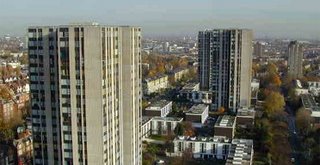.
You see on the one hand the concept of road pricing by time of day makes sense. This is because roads, like any other service, get congested when demand exceeds supply. In other industries, telecommunications, airlines, hotels, rental cars, vegetables, when demand is high the price goes up – meaning the provider does well with revenue (and can afford to cross subsidise the quiet times, make a profit or invest in more capacity to allow suppressed demand to be served), and when demand is low compared to supply, the price goes down (better to get some users than to have assets lying underutilised).
.
Roads are priced currently – but it does not really vary between vehicles. Yes you pay a bit more in congested traffic through petrol, but that barely has an effect on demand. Yes, heavier vehicles pay more per kilometre than lighter ones (road user charges work well in reflecting average maintenance costs), but that also does not affect times of peak demand.
.
The appropriate response is for current charges to be replaced with variable ones:
For example, instead of paying petrol tax, you’d pay a per kilometre charge. At peak times you’d pay a premium, like you do buying an airfare from Auckland to Wellington at 7.30am on a Monday morning – but just as you get a seat for that price on the plane, you’d get to drive in relatively free flowing traffic. In between peaks you might pay roughly what you pay now, but as you are paying directly for the road, you might think twice about your journeys distance, but you’d also demand good service from the road provider. On a quite Sunday morning you’d pay very little, as the roads are empty and the road provider would be encouraging demand – you’d pay much less than you do now.
.
Imagine if all airfares Wellington-Auckland were the same, the planes flying in the middle of the day and on Saturdays would be a lot quieter, because the fares would be double – and at 7.30am on a Monday, the airport would be jammed with businesspeople queuing up hoping for a seat, hoping someone didn’t turn up for their (relatively) cheap ticket. Sounds familiar?
.
With road pricing you wouldn’t pay rates for local roads, which should knock about 10-15% off your average Auckland rates bill – or 40-60% off your average rural rates bill. That would be paid for out of road pricing.
.
You wouldn’t subsidise public transport either – you see peak travel would cost more by car, making public transport inherently more competitive, and buses wouldn’t be caught in big traffic jams. People might start working different hours, or they might work at home once a day. You see it is a tremendous cost to build roads and railway lines and buses and trains that mostly only get used for short periods – unless the people using them pay for that cost, it is being subsidised.
.
OK, so what does that have to do with the proposals in the Ministry of Transport report?
.
A little. See the technology exists to do what I described, but the option was rejected in the report in favour of simpler technology that is well proven in Singapore, Stockholm and toll roads in many countries. The other point is that the proposed schemes in the report are designed to do two things:
.
1. Reduce congestion (through marginally pricing the road higher at the morning peak); and
2. Raise extra revenue for transport projects.
.
The first goal is laudable, but it does raise the question as to what should be done with the extra money. If it is to be spent on transport projects, it should be roads – and the $1 billion + Avondale extension of SH20 and the Victoria Park tunnel (widening of the northern motorway) should be at the top of the list, but much of what I have heard is all about rail. Efficient road pricing will make public transport more efficient and competitive, because it makes peak car commuting more expensive and frees the roads up for buses to operate more quickly.
.
However, it is just as legitimate to consider pricing to replace the current forms of pricing – petrol tax and council rates. I believe there probably is enough money available if all of the petrol tax revenue collected is dedicated to roading nationwide and allocated efficiently, and then replaced with road pricing collecting the same amount. Then as traffic grows road price revenue grows, if it declines, then so does revenue – as it should. Less traffic means less need to build new capacity, and less wear and tear (to a point).
.
The schemes proposed are a broad range:
.
Parking tax (the Greens wanted this, and it would be a regulatory nightmare. Imagine the council inspecting all private property to see who had a car park that should be taxed). Cheap to implement, not very effective and helps deter retail.
.
Motorway only tolls - shifts lots of traffic to local streets, making congestion worse. Transit might wonder if tolling the Western ring route will create similar problems.
.
Cordon/Area charges – creates boundary issues and many roads within the proposed cordon/area are not congested and shouldn’t be subject to additional tax.
.
You see, Auckland is not London, or Stockholm, or Rome or Singapore. It is a low density car oriented city with a rather weak CBD – around 12% of Auckland’s employment is in the CBD, far far less than those cities with cordon/area charges for congestion pricing. The risk for Auckland is it looks like the consultants have taken the overseas approaches and applied them to Auckland, instead of looking at Auckland’s problems and designed an approach to resolve them. The only cordon Auckland could conceivably have that might be fair is for the CBD only, boundary including Grafton Gully and SH1 – and I know that this wouldn’t reduce traffic enough to make it worthwhile, while helping kill off CBD based businesses even more.
.
Low density cities don’t need cordon charging, they don’t need high density public transport like rail and they don’t need to be forced by planners into being high density cities.
.
Auckland isn’t being eaten up by cars, they are its red blood cells. Less than 5% of Auckland trips are by public transport, although it comprises over 25% of trips to the central business district.
.
Unlike PC, I think road pricing is a solution – but not in the way it has been designed and not being operated by any central or local government agencies. There is a big risk that this report and its response will kill off serious consideration of road pricing in Auckland for many years, given the current central and local government politicians, that isn't such a bad thing - but they can both change.
.
Perhaps the best submission I have seen so far on this is from the Business Roundtable. It is a pdf file here.
.
The Business Roundtable summarises the key points well:
.
“Congestion is a manifestation of the problem known as the tragedy of the
commons – the overuse of a public resource that arises from inadequately
defined property rights. The potential costs to a community of road congestion
are enormous. In the extreme form of gridlock, road congestion potentially
removes all the benefits a community might hope to derive from its past
investments in roads.”
.
“We consider that a serious impediment to the adoption of more efficient billing
technologies is motorists' justifiable suspicion of the motives of the revenue-raising
authorities. By putting revenue generation ahead of efficient pricing and proposing
such inefficient ways of spending this revenue, the ARPES will surely heighten this
resistance and thereby make it harder to introduce changes. The authorities
therefore also need to revisit governance issues in order to find better ways of
convincing motorists that their money will not be squandered for the benefit of
fringe or minority interests.”
.
“Subsidies for buses and trains create a conflict of interest for organisations that are
also making road capacity investment decisions. Congestion charges eliminate the
weak argument for subsidising buses and trains in order to ease congestion.
Instead ARPES proposes to use such charges to increase such subsidies. The
flaws in this thinking are also reflected in the Land Transport Management Act and
need to be remedied. Public transport can only make a small contribution to
Auckland passenger transport needs and a minimal one to the needs of the freight
industry. There is a risk of highly uneconomic public transport investments being
made, at a cost of wasted capital and lower regional and national economic growth.”






